THRIVE Project is incredibly grateful to Dr. Morris Fedeli, Aunty Kathryn Fisher, Dr. Linda Kabaira, Dr. Muhammad Amjad Saqib, and Nick Takavadii for their inspirational presentations and discussions during the August 2025 Thrivability Matters Flourishing Workshop. This workshop focused on Innovation for Flourishing Communities: Poverty, Hunger, Health, & Education.
Our participants gathered at The Precinct in Brisbane, Australia (and online) for a day filled with insightful discussions, interactive workshops, and networking opportunities. Global industry experts captivated us as they shared their extensive knowledge regarding the latest trends in thrivable actions and how they help us tackle hunger and poverty, using education and technology to ensure health and well-being for all. These speakers, alongside the insightful discussions between our participants helped inspire new ideas and solutions which may solve these pressing issues and empower us all toward a thrivable future where everyone can live happy and healthy lives.
Here are the highlights from our workshop!
About the August 2025 Speakers
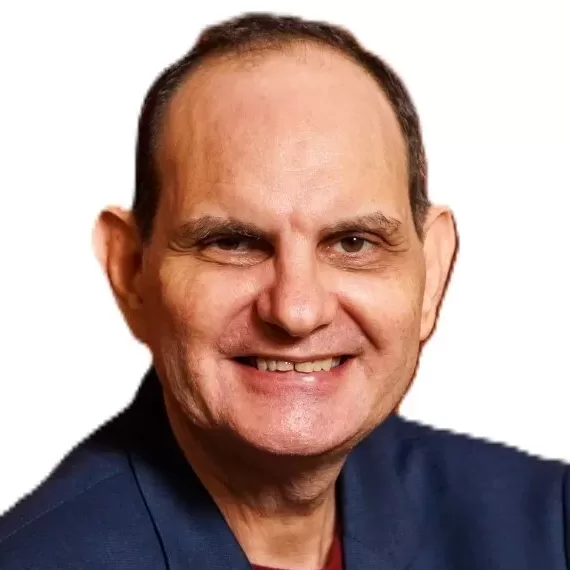
Dr. Morris Fedeli is a pracademic at the University of Southern Queensland, Australia. He brings over 30 years of experience helping organisations thrive through innovative business models and emerging technologies.
With a background spanning science, business, and project management, and professional experience across three continents, he offers a distinct Australasian and global perspective on thrivable business innovation for a prosperous society. He has held leadership roles with the Australian and Philippine Computer Societies and is an Associate Fellow of the Australian Institute of Management.
A qualified systems engineer, software developer, scientist, and technology management MBA holder, he has also served as a lay magistrate, expert witness, and keynote speaker. A systems thinker and digital nomad, he works across diverse sectors—from education, telecommunications, information technology, and hospitality.
Aunty Kathryn Fisher (or Aunty Kathy) is a Aboriginal elder from the Turrbal tribe, who was born on and grew up on Cherbourg Aboriginal Reserve.
She now lives in Brisbane where she is linked to the Turrbal People through kinship ties. She has a strong spiritual connection to her people, the land, and traditions.
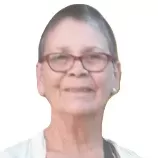
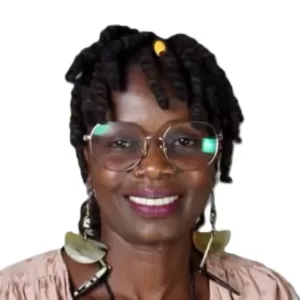
Dr. Linda Kabaira is leading a generation of Zimbabwean regenerative designers and educators to develop policy guidance for the Education for Sustainable Development framework, and projects that improve climate change resilience, food security, and livelihood development in educational institutions and communities.
A passionate, resourceful, and adaptive humanitarian, she co-designs project-based learning paths to enable young people and their communities, cultures, and traditions to thrive in a changing environment and become regenerative designers.
She combines education, transdisciplinary research, agroecology, and climate change to create sustainable food systems.
Dr. Muhammad Amjad Saqib is the founder and Chairman of Akhuwat, the world’s largest interest-free micro-finance programme, helping more than 3.5 million low-income families in Pakistan to date.
He is the Executive Director of Fountain House – a 500-bed treatment and rehabilitation institute for individuals with mental health challenges. He is also the Vice Chairman of the Punjab Educational Endowment Fund and Chairman of the Pakistan Educational Endowment Fund. His expertise includes governance, poverty alleviation, micro-finance and rural development.
Dr. Saqib has received worldwide recognition, including the “Ramon Magsaysay Award 2021”, popularly known as “Asia’s Nobel Prize”, for his remarkable achievements in restoring human dignity to Pakistan’s most vulnerable communities.
He is the author of ten books and an acclaimed speaker who has spoken at the UN, Harvard, Oxford, Cambridge and many other prestigious institutions throughout the world. He is among those few Pakistanis who have been nominated for the Nobel Peace Prize.
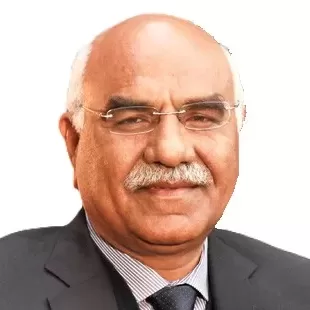
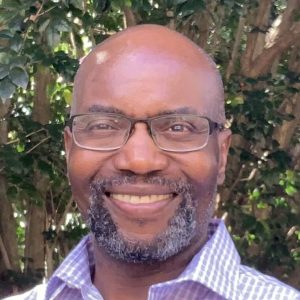
Nick Takavadii is an advocate for participatory leadership, collaboration, and environmental stewardship. He serves as the director and intercultural advisor of Percolab Coop, a social enterprise focused on developing innovative approaches to working, governing, and learning aimed at fostering a sustainable and peaceful future.
Originally from Zimbabwe, Nick now lives with his family on Turrbul Country (Meanjin, Brisbane) in Australia. He brings a rich and diverse background: as a retired contemporary dancer, a permaculture facilitator, and a leader in software systems design and change management.
Nick is deeply committed to community engagement and volunteers across several initiatives, including projects supporting incarcerated individuals and contributing at IT professional development events.
His leadership journey underwent a profound shift in 2006, when he first encountered the Art of Hosting (also known as the Art of Participatory Leadership) at Kufunda Learning Village in Zimbabwe. Since then, Nick has been on a continuous path of unlearning and relearning, constantly exploring and sharing new ways to collaborate and lead with teams, groups, and organisations.
Summary of the AUGUST 2025 Flourishing Workshop
As an organisation, THRIVE Project endeavours to guide humanity towards a more thrivable future. We had the privilege of hosting these speakers as guest presenters for our workshop.
Aunty Kathryn Fisher –
Welcome to Country
Aunty Kathryn Fisher (or Aunty Kathy) is a Aboriginal elder from the Turrbal tribe, who was born on and grew up on Cherbourg Aboriginal Reserve. She joined us at the Flourishing Workshop with the blessing of Turrbal Elder, Songwoman Maroochy, to deliver the Welcome to Country on behalf of the Turrbal People of Brisbane.
She highlighted her family’s history, from the emergence of colonisation and removal from their lands, to being born and raised in Aboriginal missions, constrained to live within a specific area, and often moved arbitrarily. This culminates in a moving message – that by showing compassion for each other, we all rise together. Thus, no matter how different we may appear, we are all connected.
Dr. Morris Fedeli –
Keynote Speech
In a compelling keynote speech, Dr. Morris Fedeli introduced the issues of hunger and poverty, and how they affect not just developing nations, but wealthy nations such as Australia. However, despite these issues, there is much potential for growth and innovation.
To this end, he discussed the THRIVE Framework, an approach to inspire change from mere survival to thriving. Specifically, by considering the problems that affect the world in a holistic manner, and using innovation and technology to empower individuals, communities, and even entire nations and the world, a thrivable future can be created, where everyone has a chance to flourish.
Dr. Linda Kabaira
“Transforming education to teach what matters:
Lessons from the SCOPE – green schools initiative in Zimbabwe”
The third speaker, Dr. Linda Kabaira, explored the issues of hunger and poverty in a Zimbabwean context. Specifically, she looked at its effects on young people and their communities. As part of SCOPE, she seeks to empower teachers with the knowledge of thrivability, so that they may convey this information to their students. This includes the issues affecting their ecosystems, and what can be done to renew them, with the aim of inspiring their communities throughout their lives.
Dr. Muhammad Amjad Saqib –
“The Story of Akhuwat:
Using interest-free microfinance, and fee-free education as tools for poverty alleviation”
Our fourth speaker, Dr. Muhammad Amjad Saqib demonstrated the value of interest-free microfinance and fee-free education as a means to mitigate poverty, providing opportunities for socially and economically marginalised individuals and families to support themselves and their communities.
Founded on the ideas of mutual support and solidarity, Akhuwat was founded in 2001 on the vision of creating a poverty-free society based on the ideas of mutual support and solidarity. In order to achieve its vision, Akhuwat uses interest-free microfinance, education, provision of clothing, community development and inclusion of marginalised as tools for poverty alleviation. To date, Akhuwat has disbursed PKR 309 billion (A$1.66 billion, or US$1.08 bilion) in interest-free loans empowering over 3.5 million families across Pakistan.
To this end, this presentation shared insights on Akhuwat’s efforts in eradicating poverty in Pakistan through a participatory development approach, as well as the learnings, challenges and sustainable plans going forward.
Nick Takavadii –
“Indigenous and Faith-Based Knowledge Systems:
A Fertile Ground for growing Sustainable Learning and Poverty Alleviation”
As the last speaker, Nick Takavadii culminated the workshop with a round-table discussion of the existence of inequality, its harmful effects on human society, and the need for adaptation from a hierarchy to equality, by motivating the sharing of resources and greater solidarity between each other. By working together and sharing our resources more equitably, everyone can more easily mitigate poverty and other issues.
Moving Forward from August 2025
The Thrivability Matters Flourishing Workshop on Innovation for Flourishing Communities: Poverty, Hunger, Health, & Education featured engaging presentations and discussions from Dr. Morris Fedeli, Aunty Kathryn Fisher, Dr. Linda Kabaira, Dr. Muhammad Amjad Saqib, and Nick Takavadii. If you missed the live event or the Q&A session, you can view the recordings on our YouTube channel.
If you’re interested in joining us after this Flourishing Workshop, there are plenty of ways to get involved. You can follow us on social media platforms such as LinkedIn, Instagram, and Facebook. Additionally, you could subscribe to our YouTube, listen to our podcasts, join our workshops, sign up for our newsletter, stay up to date with our articles, attend our free webinars, or even join us as a volunteer to make an even greater impact on the world.
Interested in Thrivability?
Want to be kept in the regenerative loop with THRIVE?
Got more questions?
Ask an expert!























